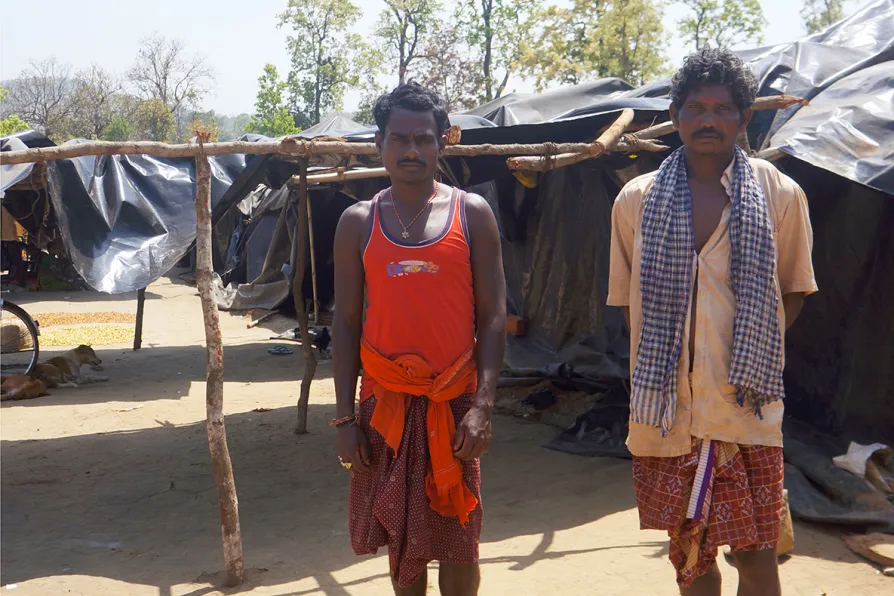
 These Khadia men were thrown off their land after it was turned into a protected area. They lived for months under plastic sheets. Millions more face this fate if the 30% plan goes ahead
[©Survival]
These Khadia men were thrown off their land after it was turned into a protected area. They lived for months under plastic sheets. Millions more face this fate if the 30% plan goes ahead
[©Survival] NEXT week’s Cop15 global biodiversity summit must drop plans to declare 30 per cent of the planet “protected areas” by 2030 or risk “devastating the lives of indigenous peoples,” rights groups and charities have warned.
Without serious overhaul, current plans “will be hugely destructive for the livelihoods of other subsistence land users, while diverting attention away from the real drivers of biodiversity and climate collapse,” a statement from Survival International, Amnesty International, Minority Rights Group International and Rainforest Foundation UK says.
In April, 250 indigenous peoples’ organisations, NGOs and academics expressed concern over a proposal to double the size of protected areas under the UN’s Post-2020 Global Diversity Framework, noting that “protected areas, which are the cornerstone of mainstream, Western-led conservation efforts, have led to widespread evictions, hunger, ill health and human rights violations, including killing, rapes and torture, across Africa and Asia,” the new statement points out.














